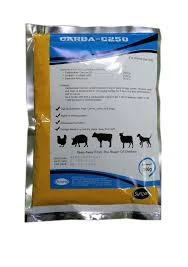- Afrikaans
- Albanian
- Amharic
- Arabic
- Armenian
- Azerbaijani
- Basque
- Belarusian
- Bengali
- Bosnian
- Bulgarian
- Catalan
- Cebuano
- Corsican
- Croatian
- Czech
- Danish
- Dutch
- English
- Esperanto
- Estonian
- Finnish
- French
- Frisian
- Galician
- Georgian
- German
- Greek
- Gujarati
- Haitian Creole
- hausa
- hawaiian
- Hebrew
- Hindi
- Miao
- Hungarian
- Icelandic
- igbo
- Indonesian
- irish
- Italian
- Japanese
- Javanese
- Kannada
- kazakh
- Khmer
- Rwandese
- Korean
- Kurdish
- Kyrgyz
- Lao
- Latin
- Latvian
- Lithuanian
- Luxembourgish
- Macedonian
- Malgashi
- Malay
- Malayalam
- Maltese
- Maori
- Marathi
- Mongolian
- Myanmar
- Nepali
- Norwegian
- Norwegian
- Occitan
- Pashto
- Persian
- Polish
- Portuguese
- Punjabi
- Romanian
- Russian
- Samoan
- Scottish Gaelic
- Serbian
- Sesotho
- Shona
- Sindhi
- Sinhala
- Slovak
- Slovenian
- Somali
- Spanish
- Sundanese
- Swahili
- Swedish
- Tagalog
- Tajik
- Tamil
- Tatar
- Telugu
- Thai
- Turkish
- Turkmen
- Ukrainian
- Urdu
- Uighur
- Uzbek
- Vietnamese
- Welsh
- Bantu
- Yiddish
- Yoruba
- Zulu
dec . 09, 2024 23:33 Back to list
Understanding the Nutritional Needs of Chicken Feed for Optimal Growth and Health
The Importance of Chicken Feed Nutrition
Chicken farming has become an integral part of agricultural practices around the globe. With the growing demand for poultry products, understanding the nutrition of chicken feed is essential to ensure the health and productivity of chickens. Proper nutrition influences growth rates, egg production, and overall chicken well-being. This article explores the key components of chicken feed nutrition, emphasizing their significance for both broilers and layers.
Understanding Chicken Nutritional Needs
Chickens, like all animals, require a balanced diet to thrive. Their nutritional needs can be categorized into several essential components proteins, carbohydrates, fats, vitamins, and minerals. Each component plays a unique role in maintaining the health of the chicken.
1. Proteins Proteins are crucial for growth, tissue repair, and overall health. Chickens require a higher protein intake during their growth phases, particularly broilers, which are raised for meat. Protein sources can include soybean meal, fish meal, and other plant-based ingredients. Layers also need adequate protein to produce eggs; inadequate protein can lead to poor egg quality and lower production rates.
2. Carbohydrates Carbohydrates serve as the primary energy source for chickens. Grains such as corn, wheat, and barley are commonly used in chicken feed to provide the energy necessary for daily activities and growth. A proper balance of carbohydrates not only fuels metabolic activities but also supports digestive health.
3. Fats Fats are essential for energy and the absorption of certain vitamins. They also contribute to the palatability of the feed. Vegetable oils, animal fats, and fat-containing seeds are often included in chicken feed to enhance energy density. However, it is crucial to manage fat levels as excessive fat can lead to health issues.
4. Vitamins and Minerals Vitamins and minerals are vital for numerous bodily functions, including immune response, bone development, and egg production. Vitamins such as A, D, E, and B-complex are important, alongside minerals like calcium, phosphorus, and selenium. For example, layers require high levels of calcium to produce strong eggshells, while phosphorus is essential for energy metabolism and skeletal health.
Formulating Balanced Chicken Feed
chicken feed nutrition

The formulation of chicken feed is a science that requires careful consideration of various factors. Feed formulations must meet the specific needs based on the age, size, and purpose of the chickens. Nutritionists often use feed formulations that combine various ingredients to create a balanced diet tailored for specific stages of development.
For chicks, starter feeds are high in protein to support rapid growth. As chickens mature, the feed formulation transitions to grower and finally to finisher feeds, which are lower in protein but higher in energy. For layers, layer feeds are designed to ensure sufficient calcium and protein to maintain egg production rates.
The quality of ingredients used in formulating chicken feed is equally essential. High-quality protein sources and grains contribute to better absorption of nutrients and overall growth. Contaminated or low-quality feed can lead to health problems and reduced productivity.
Impact of Nutrition on Chicken Health
Proper nutrition not only affects the growth and productivity of chickens but also impacts their overall health and behavior. Chickens that receive a well-balanced diet are less prone to diseases and are better equipped to cope with environmental stresses. In contrast, poorly nourished chickens can exhibit stunted growth, reproductive issues, and increased susceptibility to infections.
Moreover, nutrition also plays a role in enhancing the quality of poultry products. Well-nourished chickens tend to produce eggs with better nutritional profiles and meat with improved flavor and texture.
Conclusion
In conclusion, chicken feed nutrition is a critical factor influencing the health, productivity, and welfare of poultry. Understanding the essential components of chicken feed and formulating a balanced diet is vital for both commercial and backyard chicken farmers. As the global demand for poultry products continues to grow, the focus on optimizing chicken nutrition will play a crucial role in ensuring sustainable and efficient poultry production. A commitment to high-quality feed and proper nutrition can lead to healthier chickens and, ultimately, a more abundant food supply.
-
Guide to Oxytetracycline Injection
NewsMar.27,2025
-
Guide to Colistin Sulphate
NewsMar.27,2025
-
Gentamicin Sulfate: Uses, Price, And Key Information
NewsMar.27,2025
-
Enrofloxacin Injection: Uses, Price, And Supplier Information
NewsMar.27,2025
-
Dexamethasone Sodium Phosphate Injection: Uses, Price, And Key Information
NewsMar.27,2025
-
Albendazole Tablet: Uses, Dosage, Cost, And Key Information
NewsMar.27,2025













